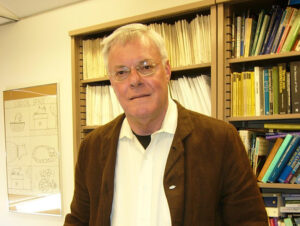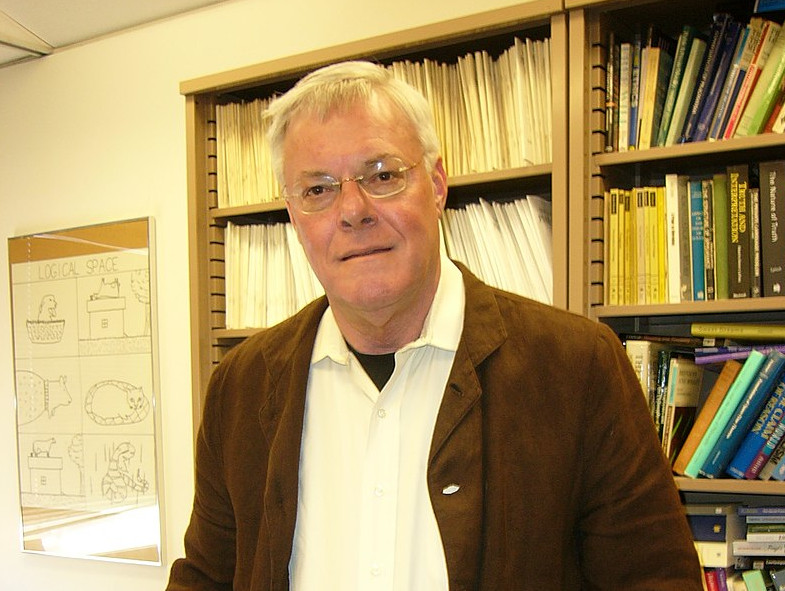In the Republic, Plato famously remarked that “there is an old quarrel between philosophy and poetry.” He also refused to include most types of poetry in his ideal city. Without suggesting a causal connection, it seems that as poetry loses its prominence more and more in pop culture and public life, the world becomes less and less ideal. But poetry is not the only discipline whose lifeline right now is the academy: philosophy too has lost much of the prominence it once commanded. Now, many view it as the handmaiden of science, much as it was once viewed as the handmaiden of theology. Whether philosophy will ever establish its own era of autonomy again is yet to be seen. But it is about these two slighted pursuits that John Koethe has written a new book, titled Thought and Poetry: a collection of essays exploring poetry and how it makes use of/lends itself to philosophy and/or philosophical idioms and discourses. Or, as Koethe himself explains the connection: “First, they [poetry and philosophy] both seem to me to be speculative activities engaging some of the same subjects. . . .in that both involve the entertaining of abstract and general thoughts and propositions in the absence of empirical, or for that matter any clear-cut, ways of establishing them.” Hmmmm.
Well, for one thing, I’m not sure poetry in general can be said to entertain propositions in the absence of empiricism, since powerful poetry often involves an appeal to our experience as sensual and sense-using beings (one of the textbook definitions of empiricism). However, there is a great amount of poetry which is abstract and conceptual, and certainly this is so among the authors that Koethe draws on throughout the book: figures such as John Ashbery, Wallace Stevens, Wordsworth, T.S. Eliot, etc. Certain poets get entire essays to themselves, such as John Ashbery, or share one with a philosophical figure Koethe deems to be similar, such as Wallace Stevens and Wittgenstein.
The poetry Koethe confesses he is most concerned with is Romantic poetry and poets who have continued the Romantic tradition into the contemporary era. A recurring idea in Koethe’s book is his suggestion that “Poetry is particularly suited to enacting the movement of thought which Kant called the dynamical sublime”. As a corollary to this transcendental view of the self, Koethe seems to believe that poetry often strengthens “that dualism” that is “deeply rooted in the character of our own self-experience, so deeply that even if we profess to know, on principled grounds, that some form of materialism must be true, we still cannot help conceiving of ourselves on the model of the transcendental self.” – As it turns out, Koethe does stand on “principled grounds”, and the last essay in his collection is a philosophical defense of a materialistic dualism that both affirms our “experience” of the transcendental self and reveals it to be an illusion. In other words, bibbity-bobbity-philosophical-boo.
It’s unclear what Mr. Koethe’s motivation might be in saving his worst for last, but he suggests one motive when he says that “dualism is regarded as prima facie unacceptable”, I assume in much the same way a philosophy of atheism was unacceptable when philosophy was slaving away on behalf of theology instead of science. In other words, Koethe doesn’t want his reader walking away with the wrong ideas, and so he dedicates an entire essay to expositing arguments which are as dry as kindling and certainly won’t light any intellectual fires. My advice: skip it. Let poetry offer its own proofs, philosophy work within its own modes of discourse and idioms, and science slug away at its own form of empiricism. Science is not the line we need to draw in the sand for philosophers or poets.
Anyways, let’s get back to the good stuff. Koethe’s most enjoyable and insightful essay is the one for which the book is named: Thought and Poetry. I quoted a bit of it above (how poetry and philosophy are both speculative activities), but beyond this similarity, Koethe identifies two others: firstly, the “enactment of subjectivity. . . .against the claims of an objective natural setting which threatens to annihilate it.” And secondly, poetry’s ability to embody different philosophical “conceptions and outlooks”, such as Ashbery’s poetic conception of the self which Koethe argues resembles Kant’s transcendental subject.
Strangely, both this best of his essays and the worst (last) of them are about the idea of the self as “something existent”, yet not “part of the natural, factual, material world,” something which “can’t be identified with anything belonging to the natural order.” As part of his project to show how poetry can lend its aesthetic insights and resources to poetry, Koethe examines Elizabeth Bishop’s poem “In the Waiting Room”, which he says portrays “a powerful sense of consciousness” which is separate from the natural world. A poem such as this, he says, has the power “to compel and convince” us of a transcendental self-hood, and this, he concludes, might suggest that the conceptual function of poetry, at least philosophically speaking, is a “performative one”, not propositional. Poetry can make a very convincing case for a particular philosophical viewpoint through its images, the kind of experiences it induces and draws upon, and the general aesthetic appeal of the poem.
Of course, there are numerous other essays in the book about numerous other authors and topics, but I think I’ve covered Koethe’s central point (and the book’s): that poetry can perform what philosophy can only propose and thereby offer a persuasive intellectual argument in its own right. This is powerful. It exalts poetry’s place within the hierarchy of the mind’s activities and adds one more reason why poetry ought to be taken seriously. There is also much original, insightful criticism of difficult poets such as Stevens and Ashbery. And yes: there are the disappointing aspects of the book. I think it is quite clear (see above) that Koethe is a philosopher who doesn’t trust philosophy to tell the truth without the supervision of science, or poetry to tell the truth without the supervision of both. This is sad, but especially since Koethe is both a philosopher and a poet.
I recall the words of perhaps the greatest physicist of all time: “He who is untrue to his own cause cannot command the respect of others.” In order to see the truth – the objective truth – in poetry, we ourselves must be true to poetry by accepting it on its own terms. Nothing else.
Photo credit: Publicity shot, in his office at the University of Wisconson, where he is Professor of Philosophy
Thought and Poetry is published by Bloomsbury. It is $103.

